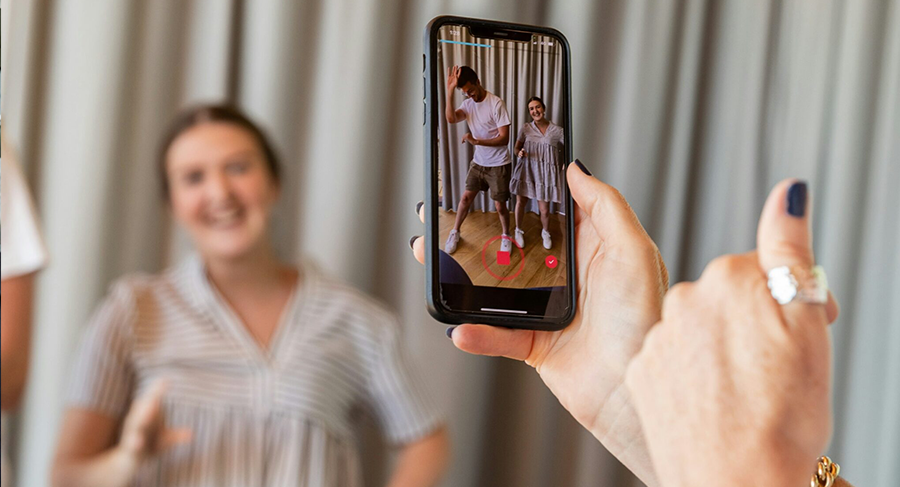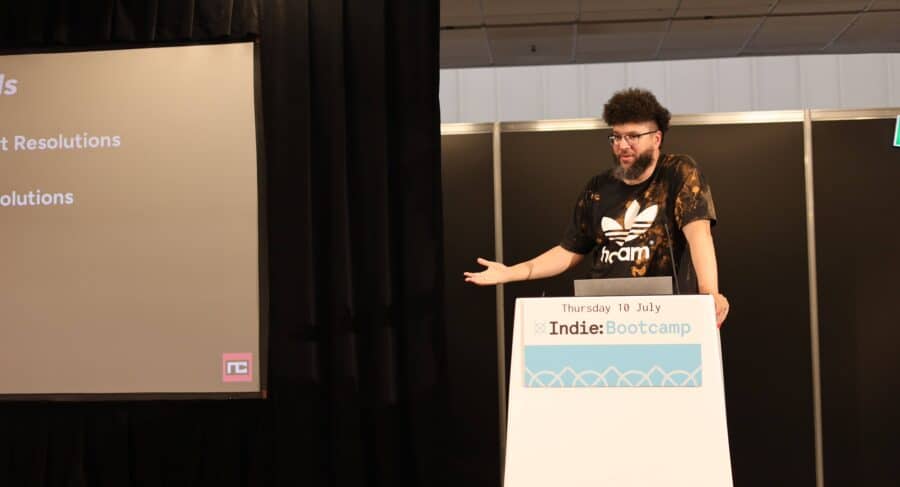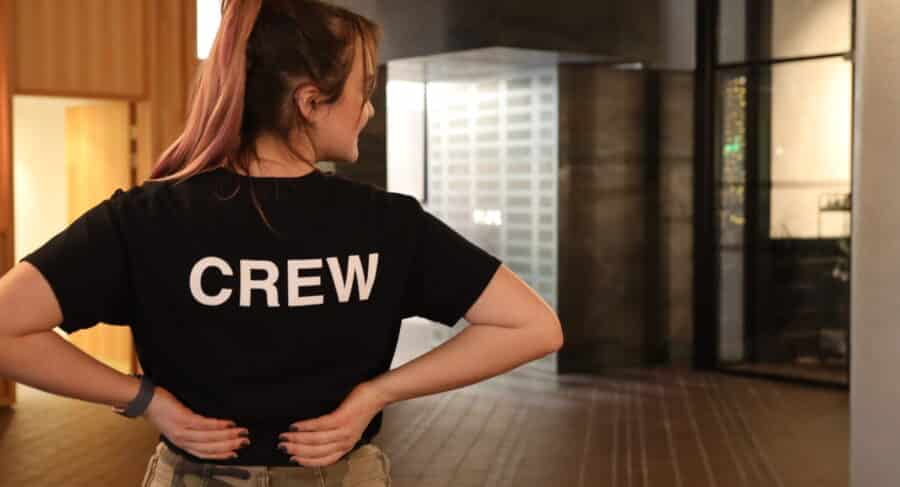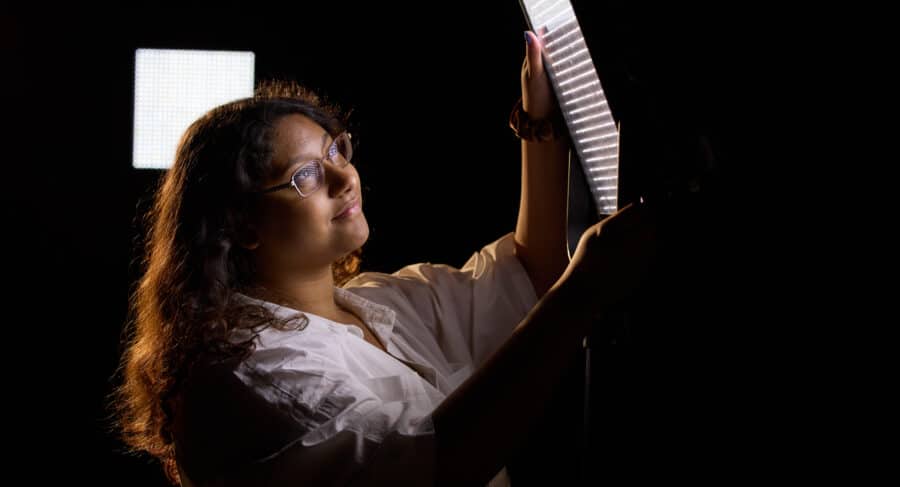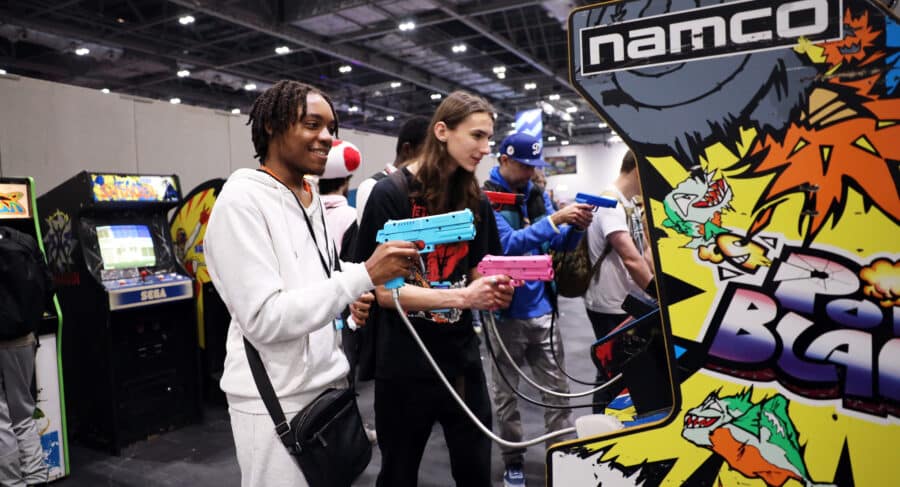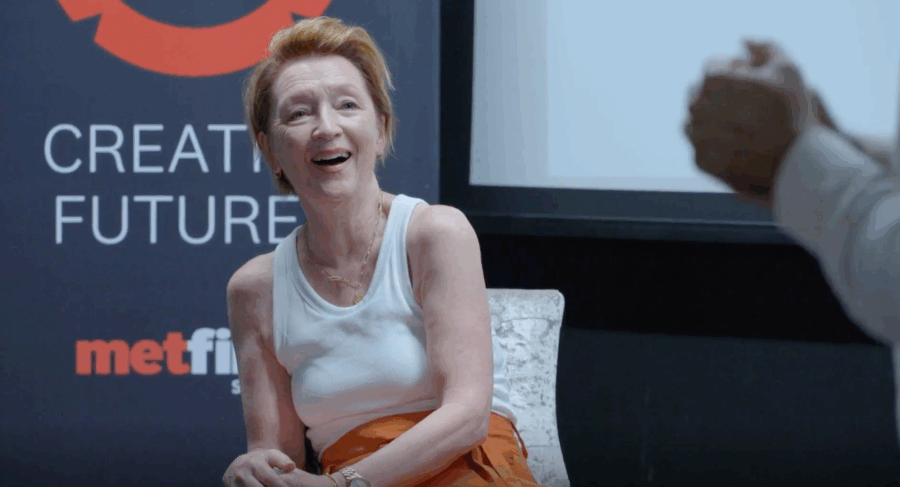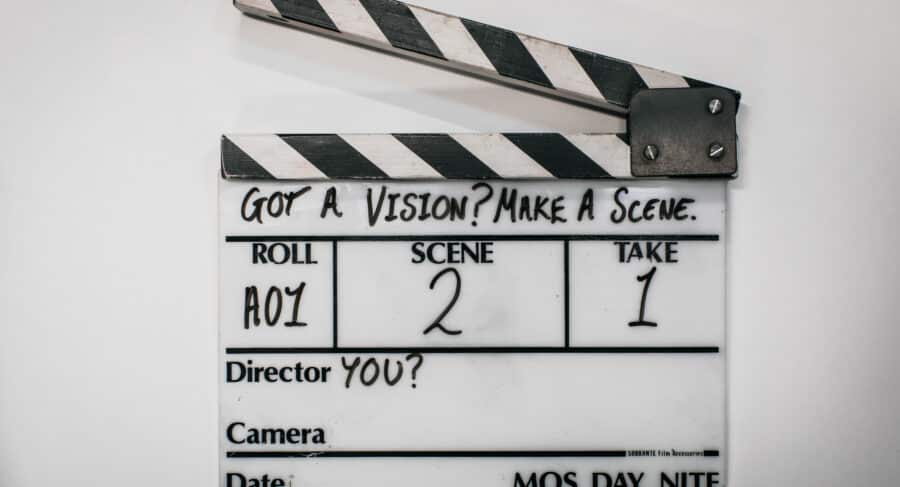Bailey Metcalfe’s journey from graduate to games industry pro
By MetStudios
15 June 2025
At MetStudios, we’re proud to spotlight the journeys of emerging talent making waves in the games industry. Bailey Metcalfe, a graduate of BIMM University, is one such rising professional whose passion for gaming and versatile creative skillset has led to a role as a QA Technician at Hangar 13. From running his own media company to working at the heart of a AAA studio, Bailey’s story offers a refreshing insight into the day-to-day of game development, and what it truly takes to succeed in this fast-moving field.
What inspired you to get into the games industry?
I’ve had a love for games since I was able press buttons. This compounded as I got older, and I found myself inspired by what games could give the player from an experience perspective. As a creative, I really gravitated towards these experiences and thought I’d love to go from being the customer to being a creator, so I went for it and here we are.
Would you describe yourself as a gamer? What does gaming means to you.
Yes, 100% through and through and I’m very thankful for that. Games have been a large part of my life for as long as I can remember.
I met some of my closest friends running through a field in DayZ. I have lifelong friends that live on different continents, which I would never have crossed paths with outside of gaming and the platform it provides.
What are some of your responsibilities and daily tasks as a QA Technician at Hangar 13?
Play it, find it, fix it. As QA, you are the eyes of the game so to speak. It’s my job to find things that are broken, or not up to the level that we want for the game, and task that to the relevant team or individual. Alongside this, I look after some tasks onsite such as dev kit management amongst other things. This is where having a wide skillset comes in handy.
What’s studio life like? Is it the way you imagined it would be?
Better in every way. Having never been in this industry prior to this role, I was curious as to how the day-to-day functions ran. I can honestly say it far exceeded my expectations. The level of camaraderie and support is leaps and bounds above anything I have experienced before. Also, being surrounded by passionate people 24/7 influences you. I find myself motivated everyday to just achieve in any way that I can.
Tell us about your time running Engage Media. How does your experience in graphic design, 3D modelling, and video editing enhance your role in games?
In my role, the more skills you have the better. Being familiar with industry tools is great of course, but also being familiar with other tools has a massive benefit. The reason I have found success in my role is because of these alternative resolutions and knowledge.
Video editing is something I use all the time to explain specific issues. Graphic design has given me an eye for detail that is far above what is required, meaning I can deliver above expectation, which in turn makes other teams workload a bit lighter not having to read through a content-dense excel spreadsheet and use a visual board instead. 3D modelling has a lot of similarities with game engine utilisation, so I feel right at home in a 3D editing environment.
What are some common challenges you face in game testing, and how do you overcome them?
Time is the hardest challenge I come up against. In game testing, and throughout development, there is only ever more things to test but the same hours in the day. As a tester, it is crucial that you have the ability to manage priorities and be flexible with your workload to ensure the maximum impact at all times.
How do you collaborate with developers and other departments to ensure a high-quality experience for players?
As a QA, I spend 95% of my time in a game so my knowledge and experiences are something that are called upon for feedback or input often. A designer may work on one or two “missions,” but may want to see how their piece of the puzzle fits into the whole picture.
Alongside this, its also my job to assist in fixing issues. If there is something wrong, I need to detail what the issue is, where it is, how to see it etc. so depending on the issue depends on the level of collaboration in resolving it.
What tools or technologies do you frequently use in your QA processes, and what do they do?
Each company has its own methodologies but what I will say is there is a workflow in which tools can be swapped out depending on project and application. Usually you require the following: An engine > a platform for briefing and overall creative direction > a tracking tool for progress on development/ bugs > communication platforms. Alongside these, I personally use OBS, Davinci resolve, Handbrake, and dev kit management software, to name a few.
How does player feedback influence your approach to quality assurance and testing?
It has an impact to an extent; however, every player is different. Feedback is very much what it is, feedback. If we put a single player story game in the hands of a hardcore FPS player, the feedback we got back wouldn’t necessarily make the game better. As QA, it’s my job to ensure a player has a seamless and immersive experience. Regarding what that experience is falls upon the rest of the teams and their expertise.
What do you feel is the most important attribute for someone wanting to work in the games industry?
Be flexible, every day has new challenges and new solutions. No one day is the same for me and there is no telling what tomorrow’s challenges will be. The more comfortable you are with this, the better your decision making will be and the more success you will find.
What’s the most valuable lesson you’ve learnt in your professional career so far?
I always absorb as much knowledge as I can from as many people I can. Put it this way, if you have a conversation with a senior member of a team and they view things a certain way, why is that? The same can be said from designers, artist, developers, etc. There are people on every team who are a wealth of knowledge and would be happy to show you a thing or two or just have a conversation. Some of the biggest conversations of my career have happened over a 5-minute coffee break. Conversation is key.
What advice would you give to current students aspiring to enter the games industry?
Be easy to work with, be a sponge for knowledge, and listen to your surroundings but never be afraid to speak up and offer an opinion or perspective. The games industry is about creating, so go into it with a creative headspace. Everybody has unique skills, perspective and things they can offer. I didn’t get this role solely because of my professional experiences, but largely because of my perspectives, skills and ability to communicate. If you are already looking into the games industry and aspiring to get involved, you are already on the right track. I wish now I would have got involved years ago, but never thought it was possible.
Ready to turn your passion for video games into a career?
At MetStudios, we equip aspiring game designers, artists, and developers with the skills to bring their creative visions to life. Whether you’re interested in game design, development or art, our industry-led courses will help you break into the world of interactive storytelling.
Explore our courses and take your first step into the gaming industry today!


